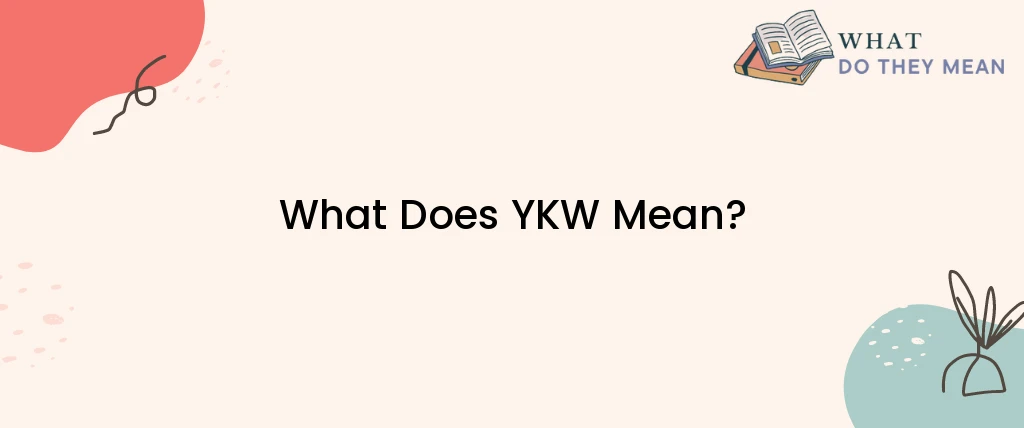“You Know What” (YKW) is a phrase that is commonly used in casual conversation as a filler or a way to introduce a topic that the speaker believes the listener is already familiar with. The phrase is used as a way to indicate hesitation or uncertainty, similar to saying “you know” or “like.” However, it is prohibited to use it in formal conversation or writing.
YKW as a Filler Phrase
The phrase “you know what” has been around for a long time, but the use of the acronym YKW is a more recent development. The rise of text messaging and social media has led to the use of acronyms and shorthand in written communication, and YKW is no exception. In online communication, YKW is used to save time and space, but it is also used to add a sense of informality and casualness to the conversation.
Using YKW to Introduce Familiar Topics
One of the most common uses of YKW is as a filler phrase. When people are having a conversation, they often use filler phrases like “you know” or “like” to indicate hesitation or uncertainty. YKW serves the same purpose, but it is more concise and to the point. For example, instead of saying “You know, like, I was thinking that we should go out for dinner tonight,” someone might say “YKW, let’s go out for dinner tonight.”
YKW in the Era of Digital Communication
Another common use of YKW is as a way to introduce a topic or phrase that the speaker believes the listener is already familiar with. For example, someone might say “YKW, the new iPhone is out” as a way to indicate that they assume the listener is aware of the new iPhone release.
Conclusion
To sum up, YKW is a commonly used acronym that stands for “You Know What”, it is a way to indicate hesitation or uncertainty, similar to saying “you know” or “like.” It’s also used to introduce a topic or phrase that the speaker believes the listener is already familiar with. With the rise of text messaging and social media, the use of acronyms and shorthand in written communication is becoming more common, and YKW is a perfect example of this trend.

As a researcher, I am curious and driven by the pursuit of knowledge. I approach my work with a critical eye, carefully evaluating sources and methods to ensure that my findings are accurate and reliable. Whether delving into scientific studies, historical records, or cutting-edge technologies, I am always seeking to expand my understanding and make new discoveries. I am dedicated to uncovering new insights and finding solutions to complex problems, and am driven by a passion for uncovering the truth.

